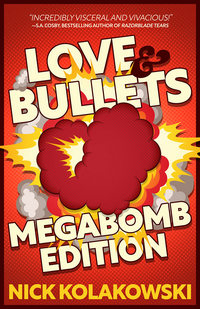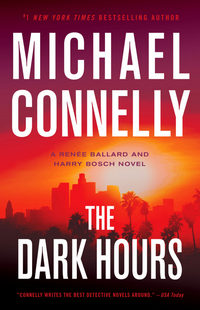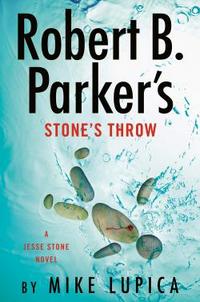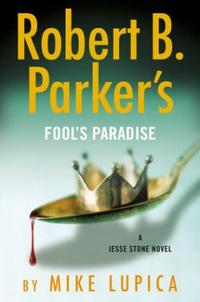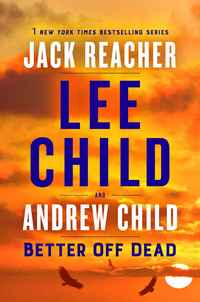 |
Better Off Deadby Lee Child and Andrew Child Hardcover, 325 pg. Read: December 7-9, 2021 |

What’s Better Off Dead About?
Continuing the westward journey he started back in Past Tense, Reacher finds himself about as close to the US/Mexican border as you can get in one of the smallest towns we’ve seen him in.
He encounters an Army vet hunting for her twin—who has gotten himself mixed up with some sort of smuggling operation—that might be getting into something more serious. Michaela Fenton gets Reacher to help out with a scheme to put her face-to-face with the head of the operation.
Things go south, and before you know it, it’s Reacher against this shadowy organization trying to save the Fenton twins and put an end to a plot that’s either an act of political protest or deadly attack (Reacher’s assuming the latter).
That doesn’t make a lot of sense—but trust me, something as convoluted as this plot doesn’t make it easy to summarize in a coherent fashion.
So, what did I think about Better Off Dead?
I strongly considered listing all my problems with this—but why bother? Venting my spleen might make me feel better, but I don’t want to spend the energy on it.
Let me try to be concise—it was a giant, implausible, mess. The original plan that Reacher and Fenton come up with to take down the bad guy makes every single machine that Rube Goldberg drew seem efficient and straightforward. I couldn’t believe that Reacher would sign on to it—and even after he started voicing concerns, he still went along with it. Reacher’s known for his brawn, but his brain has always been—up to this point, anyway–just as important (if not more so). This was just dumb.
I was annoyed very early on, texting a friend, “Worst.Reacher.Ever.” Although I noted that the Child brothers had 250 or so pages to make me change my mind. I really wanted them to. But man, those short stories about pre-teen/teenager Reacher in New York City or Okinawa look really good to me now.
The least troublesome part for me was the voice—Lee Child tended toward the third-person, but occasionally used first to great effect. This time, first-person didn’t help matter—and while I haven’t read any readers complain about it, a lot of what I have seen people complain about I think would’ve worked if it was in the third-person (and/or wouldn’t have been part of a third-person narration).
There were some good scenes, a handful of chapters that worked for me, in fact.* But they were a distinct minority. Still, in trying to be fair, I’d say if this was a thriller by a relative newcomer? I’d be more positive about it (not much more, but more). But Andrew Child (née Grant) has a dozen novels under his belt and Lee Child has twice that—also this is a Jack Reacher novel. There are standards that must be upheld.
*I’d planned on talking about some of those, but this post is longer than I’d intended it to be already, so let’s leave it at “the whole thing wasn’t a dumpster fire.”
I knew that there’s be some growing pains as Lee backed off to let Andrew take over, but this was worse than that. The Sentinel wasn’t perfect, but it was something to work from. Better Off Dead was a major setback and will take some work to recover from. Sadly, I bet that no one’s going to make Andrew buckle down and do that work (please, please, someone prove me wrong).
I walked away from the interview I heard with them a few weeks ago with the impression that Andrew doesn’t typically work with the “no outline” approach of Lee—maybe if he didn’t try to ape that style, he’d be better off. There were a few times in my notes I wondered if they’d changed their minds about where the plot was going.
Give this one a pass—go back and read/reread 61 Hours, Nothing to Lose, Personal, or…you know what? Anything from The Midnight Line or earlier. It’ll be time better spent.

This post contains an affiliate link. If you purchase from it, I will get a small commission at no additional cost to you. As always, opinions are my own.
![]()




 Grab a book, any book.
Grab a book, any book.